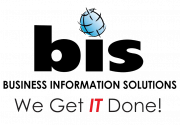Faced With Computer Crashes, A Lost Password Or A Network Failure With No In-House Computer Expert?
Most businesses don’t worry about a computer crashing, a password being lost or a network going down when they have an in-house IT expert to handle it. But what happens if that IT guru suddenly isn’t there? That computer crash, lost password or downed network could suddenly be crippling your business and hindering the productivity of your employees.
Here are six tips to help you avoid this terrifying technology headache:
- Keep detailed network documentation about your business’s computer network. Be sure to keep track of what software licenses you own and what the administrator passwords to your systems and devices are. Don’t forget to keep an organized inventory of what hardware you own and when the warranties on the equipment you use expire. Be sure to take advantage of cloud vendors for email, online storage and security. And remember to NEVER leave all this information in the hands of a single IT expert in your company.
- Be certain you know where your backup files are stored and that they are being stored properly. Make time in your schedule to monitor or check in on your business’s system backups. If your database or network crashes, you want to be sure your data and information has been backed up properly.
- Make sure you have a written plan in place for restoring your network fast, so you are prepared in case of a disaster. Every business should develop and test a disaster recovery plan for their office. If your business is lacking such a plan, you could be completely lost in the event of data or network disaster.
- Keep track of where all of your software is stored. You have to take the time to organize and store your software and data in a secure location. This cuts down on the restore time of a program or software. It also allows you to avoid having to repurchase the software or programming, like you may have to if you are unable to find it.
- Know what routine maintenance must be done for your network and monitor to be sure it’s being completed. Familiarize yourself with your business’s servers, workstations and peripherals on your network. This may sound foreign or like extra work you don’t want to take on, but it’s crucial information to maintain and have in case issues arise.
Learn how to protect yourself from hostile security breaches in case your IT expert suddenly quits and still has access. Immediately task yourself or your staff with disabling the former employee’s access to your network and all your cloud based applications.










